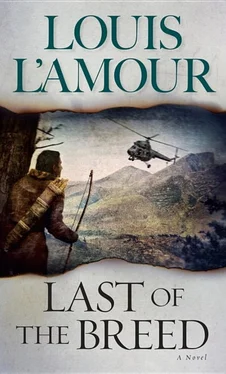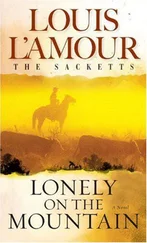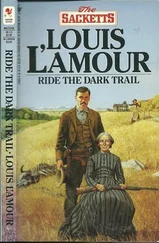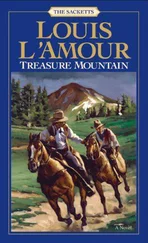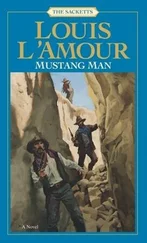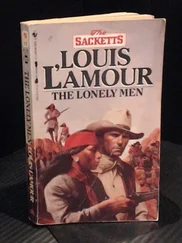Louis L'Amour - Last of the Breed
Здесь есть возможность читать онлайн «Louis L'Amour - Last of the Breed» весь текст электронной книги совершенно бесплатно (целиком полную версию без сокращений). В некоторых случаях можно слушать аудио, скачать через торрент в формате fb2 и присутствует краткое содержание. Город: New York, Год выпуска: 2010, ISBN: 2010, Издательство: Random House Publishing Group, Жанр: Триллер, Историческая проза, Приключения про индейцев, на английском языке. Описание произведения, (предисловие) а так же отзывы посетителей доступны на портале библиотеки ЛибКат.
- Название:Last of the Breed
- Автор:
- Издательство:Random House Publishing Group
- Жанр:
- Год:2010
- Город:New York
- ISBN:978-0-553-89935-1
- Рейтинг книги:3 / 5. Голосов: 1
-
Избранное:Добавить в избранное
- Отзывы:
-
Ваша оценка:
- 60
- 1
- 2
- 3
- 4
- 5
Last of the Breed: краткое содержание, описание и аннотация
Предлагаем к чтению аннотацию, описание, краткое содержание или предисловие (зависит от того, что написал сам автор книги «Last of the Breed»). Если вы не нашли необходимую информацию о книге — напишите в комментариях, мы постараемся отыскать её.
Last of the Breed — читать онлайн бесплатно полную книгу (весь текст) целиком
Ниже представлен текст книги, разбитый по страницам. Система сохранения места последней прочитанной страницы, позволяет с удобством читать онлайн бесплатно книгу «Last of the Breed», без необходимости каждый раз заново искать на чём Вы остановились. Поставьте закладку, и сможете в любой момент перейти на страницу, на которой закончили чтение.
Интервал:
Закладка:
Only three men in England, but one of them had a talkative wife. “Something very hush-hush,” she said, “so the Admiral won’t be coming.” And the Admiral always came, so it was something very important, indeed. The Baroness, who had a way of life to maintain, commented, “Surely he will be here for the Finals?”
“Not likely,” the talkative woman replied. “He’s gone off to some place outside Glasgow. Oh, he’ll miss it! He’ll miss it frightfully!”
A few hours later the Baroness was on the telephone. “Yes, the Admiral.” A pause. “Nothing but the Second Coming would keep him away.”
The man on the other end of the line knew enough about the Admiral to know she was right. And the Admiral was a top authority in chemical warfare. Outside Glasgow was a small chemical plant engaged in insecticide research, a plant with no military significance.
Within the hour The Man On The Other End was on a train for Glasgow, and the morning after he arrived he knew where the Admiral was staying and was himself having a drink in a pub near the chemical plant, a pub where workers at the plant dropped in for an evening libation before going home.
“Lots of bustle,” he heard a man say, “like somebody kicked over a hive of bees.”
“It’s the new contract,” another was saying, “the one with Commonwealth. Keep us busy for months, they say.”
“Who was the white-haired gent? The way they was treatin’ him he must own Commonwealth.”
“Nah,” the first man replied, “’e was in to see Pennington. Not likely Pennington would have aught to do with Commonwealth. ’E’s pure research.”
“There was two others come in, too. Nobody I’ve seen around before, an’ it’s Parkins ’o handles Commonwealth.”
The Man On The Other End needed little more, although he finished his bitter and ordered another. The white-haired man would be the Admiral. He and two others had come to see this man Pennington, in “pure research.”
That was how it began, and the Baroness received a neat packet of bank notes, dropped in her mailbox in a candy box: something to help her maintain her position, as it might be put. It helped to have a listening post where the mighty gathered, and it was so expensive to live, these days.
He was in the pub at the inn where the Admiral had put up when the Admiral came in. Two men were with him, and The Man On The Other End recognized one of them — another bigwig in chemical warfare. So it was something. Trust the Baroness. Her intuition was good.
Three weeks later, Pennington disappeared.
Chapter 2
Inside the prison barracks a row of eight cell doors faced a blank wall. In the door of each cell was a window four inches square crossed by two upright bars. The window remained open at all times.
Inside each cell there was a narrow cot, a small table, a chair, and toilet facilities. Another type of cell awaited him, no doubt, if he failed to cooperate.
The walls were of logs, squared and perfectly fitted. The lock on the outer door was a simple one. Those on the cells were only slightly more complicated. Obviously they depended on the electrified barbed wire and the guard towers. Also, beyond the wire lay the enormous length and breadth of a friendless land.
He had never lived on a reservation. His one white grandparent had left considerable property to the Makatozi family in the Snake River country of Idaho, most of it high country in the mountains, a land of rushing rivers, of small meadows and forest. Most of the land lay far from any highway, completely cut off in winter, isolated even in summer. It was land nobody wanted, a land without visitors. Occasionally, trappers had come through the land, but had been warned off. A friendly prospector had assured Joe’s family that there was both gold and silver on the land, but was ignored. Lumber interests had offered modest prices that were refused, and they did not persist. Access was too difficult, building roads too expensive, and Joe Makatozi’s father had been just as pleased. He loved the lonely mountains, loved the isolation. Yet when Joe became five his father took him away to send him to school.
There had always been books in the house. The white grandparent had been a Scotsman of good family, and he had had several hundred books packed into his lonely hideout. Later, when a Hudson’s Bay post was being abandoned he had appropriated its extensive library. He had taught his family to read, and he was continually reading aloud himself. It became a way of life for them all, and Joe had grown up on stories of his Indian ancestors and those of the Scottish Highlands as well.
The old man had died after a fall at the age of one hundred and one. During his last year on earth he had taught young Joe to read and had read to him from Scott’s ‘Tales of a Grandfather’, as well as many of the Waverly novels.
Joe’s thoughts returned to his present situation. The approximate position of his prison he could guess, but its exact position he did not know. He was, he was sure, in the vicinity of Lake Baikal, and to the north, east, and south stretched forest, swamp, and tundra. He knew nothing of the lands to the west.
The taiga, as it was called, was one of the finest stands of timber on earth, hundreds of miles wide and just as long. Or so he had heard.
From the moment of his capture his one thought had been to escape, and to escape at the earliest possible moment.
Lying on his back on the cot, he considered the possibilities. He must expect to be fired upon. He might be hit. Once beyond the wire he could cover the distance to the woods in five or six seconds. With guns behind him to lend impetus he might do even better. If the attention of the guards could be diverted he might be under fire for no more than three seconds.
He might be killed, he might be severely wounded, but those were things he could not consider now. If either of these things happened he would be either buried or a helpless prisoner. All his attention must be devoted to escape.
All right, then. Suppose he got into the trees? He must run as he had never run before. He must put so much distance between himself and the compound that efforts to recapture him would be well behind him.
If he could run farther, faster than they expected that just might happen. So his first efforts must be for distance and then to mislead his pursuers concerning the direction he was taking.
The nearest border was with Mongolia, and beyond that, China. Of Mongolia he knew virtually nothing except that it was somehow affiliated with the Soviets. He also believed it to be a land of rolling hills, grassland, and desert, and its border with China would be patrolled with great care. It was that border, the nearest one, which he would be expected to attempt.
To the north lay the Arctic, to the east and northeast a vast stretch of taiga, tundra, and extremes of weather. Beyond it was the Bering Sea and Alaska. If the anthropologists were correct, his own people had once followed that migration route, pursuing the game that led them across the then existing land bridge to America. If they had done it, he could do it.
At night the compound would be a glare of light, but suppose the lights could be shorted out? Undoubtedly there was a backup system. But might there not be a time lapse?
If he remained where he was they would find means to break him and extract the information they wanted, as one would remove the meat from a cracked nut.
He was not afraid of pain. He had endured pain and could do so again.
Morning came and with it a crust of black bread and some thin gruel. He was informed there would be a fifteen-minute exercise period in which he must keep walking. If he stopped he would be shot. No prisoner was to approach to within six feet of the wire. A white line was drawn on the ground so there would be no mistake. There was no restriction on speech, but they must keep moving.
Читать дальшеИнтервал:
Закладка:
Похожие книги на «Last of the Breed»
Представляем Вашему вниманию похожие книги на «Last of the Breed» списком для выбора. Мы отобрали схожую по названию и смыслу литературу в надежде предоставить читателям больше вариантов отыскать новые, интересные, ещё непрочитанные произведения.
Обсуждение, отзывы о книге «Last of the Breed» и просто собственные мнения читателей. Оставьте ваши комментарии, напишите, что Вы думаете о произведении, его смысле или главных героях. Укажите что конкретно понравилось, а что нет, и почему Вы так считаете.
